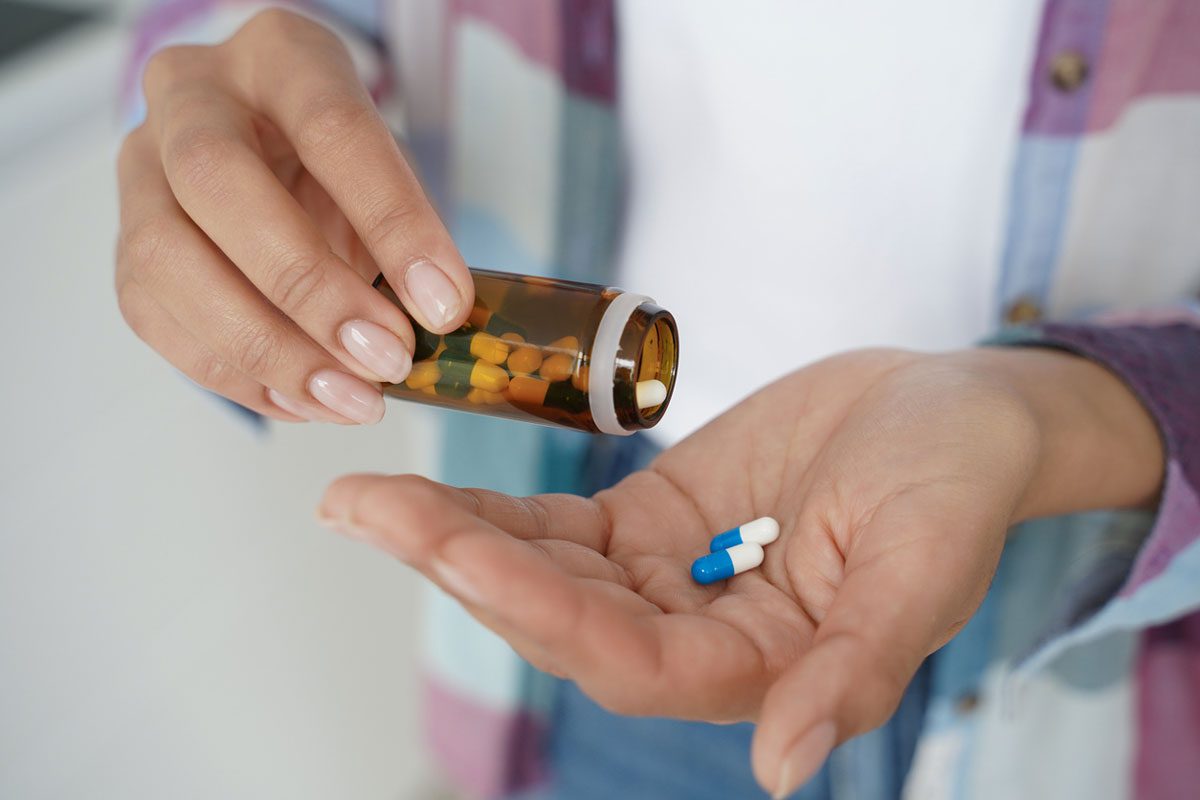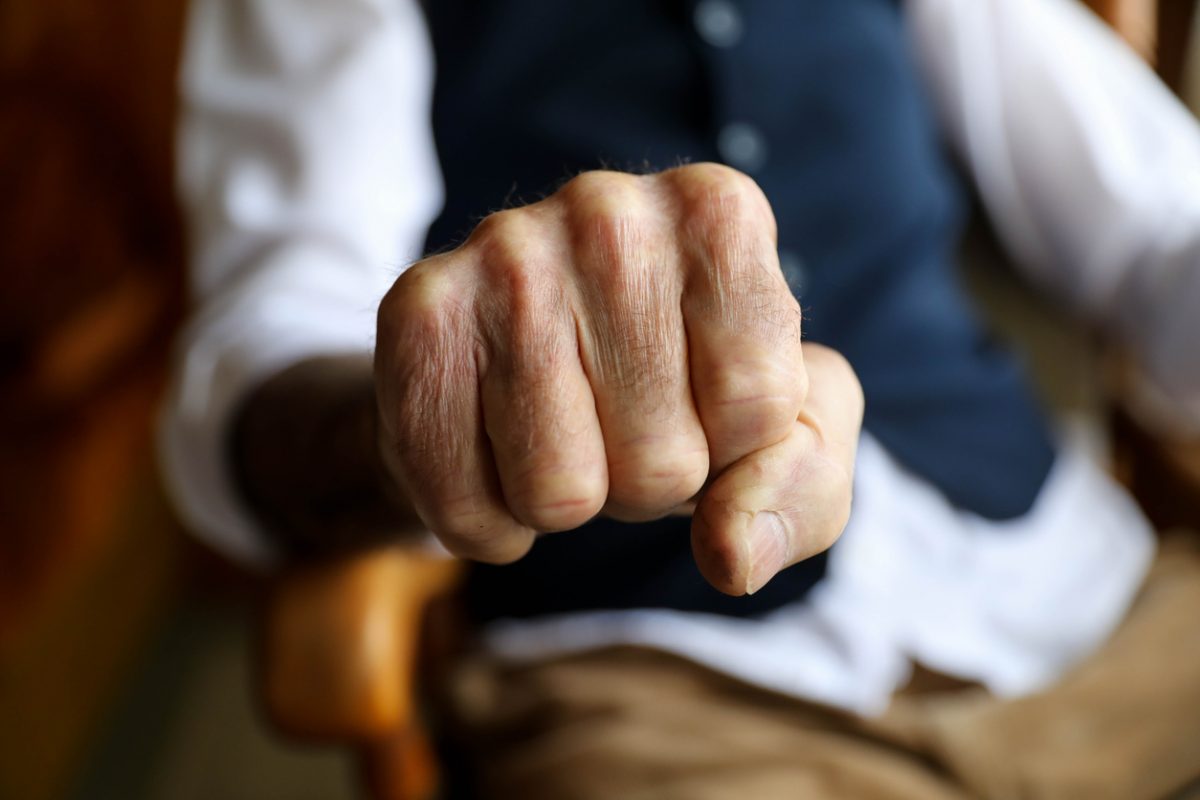Because this piece does not have an abstract, we have provided for your benefit the first 3 sentences of the full text.
To the Editor: Aripiprazole differs from other antipsychotics because of its unique pharmacologic profile; it acts as a partial agonist of the dopamine D2 receptors. The literature shows a surge of reports describing impulse-control behaviors with dopamine receptor agonist drugs, and the US Food and Drug Administration (FDA) recently issued a warning regarding these behaviors. In this report, we describe the case of a patient with bipolar disorder who developed hypersexuality following aripiprazole treatment.
Aripiprazole-Induced Hypersexuality
To the Editor: Aripiprazole differs from other antipsychotics because of its unique pharmacologic profile; it acts as a partial agonist of the dopamine D2 receptors. The literature shows a surge of reports1-4 describing impulse-control behaviors with dopamine receptor agonist drugs, and the US Food and Drug Administration (FDA)5 recently issued a warning regarding these behaviors. In this report, we describe the case of a patient with bipolar disorder who developed hypersexuality following aripiprazole treatment.
Case report. Mr A is a 60-year-old man with a history of bipolar II disorder (DSM-5 criteria) and no significant medical problems, who was being followed in an outpatient practice. He had no prior history of substance abuse, psychiatric hospitalizations, or suicide attempts and was stable for more than 6 months on lamotrigine 300 mg daily, venlafaxine 75 mg daily, risperidone 1.5 mg twice daily, and clonazepam 1 mg twice daily as needed. During a follow-up appointment, he displayed moderate grandiose delusions, and the risperidone was cross-tapered with aripiprazole to address those symptoms. A month later, Mr A presented with elated mood. Aripiprazole was increased to 15 mg daily, risperidone was completely tapered off, and his symptoms disappeared. After a month of treatment with aripiprazole, Mr A became obsessed about engaging in sexual activities and had a very high libido and an uncontrollable urge to masturbate. Besides hypersexuality, he displayed no other manic or hypomanic symptoms; his symptoms at that time were very different from his prior hypomanic states. A complete medical workup was performed, and all of his laboratory values (including thyroid function and HIV) came back within normal limits; his urine toxicology test was positive for benzodiazepines, which was consistent with prior results, and his head computed tomography scan was unchanged from prior scans. Aripiprazole was ultimately discontinued, and all of his hypersexuality symptoms ceased within a few days. After 2 weeks, Mr A was at his baseline level of functioning prior to the cross-taper when he was asymptomatic.
In this case, the hypersexuality symptoms followed a reasonable temporal sequence after aripiprazole was started, and that all of the symptoms disappeared after the cessation of the drug points toward a correlation between both events. Also, Mr A’s score of 9 on the Naranjo Adverse Reaction Probability Scale6 indicates that the hypersexuality was definitely an adverse reaction to aripiprazole.
The majority of antipsychotics cause decreased libido and have negative effects on sexual desire and function.7 Conversely, aripiprazole acts as a partial agonist of the dopamine D2 receptor, as a partial agonist at the 5-HT1A receptor, and as an antagonist at the 5-HT2A receptor. Literature8,9 shows that medication with partial dopaminergic agonistic activity can cause compulsive behaviors, such as pathological gambling, compulsive shopping, and hypersexuality.4 Reports9 indicate high prevalence rates of compulsive behaviors from 6% to 24%, and, in the majority of the cases,1,2 the abnormal behavior ceased after drug discontinuation.
The mesolimbic dopaminergic circuit acts as a reward system for food, sex, and drugs of abuse and may be involved in compulsive disorders. Brain dopamine systems that link the hypothalamus and the limbic system appear to form the core of the excitatory system, while serotonin has clear inhibitory effects on sexuality.10 There are several hypotheses underlying the possible mechanisms of this association. Moore et al4 suggested that these behaviors are reward-based and are reinforced by dopaminergic stimulation, specifically by the dopamine D3 receptor. Others suggest that the combined antagonism of 5-HT1A and partial agonism of D2 receptors of aripiprazole could cause frontal dopamine release,11 especially in patients with chronic exposure to D2 antagonists,12 which would result in a state of relatively high dopamine activation and could even cause full manic symptoms.
To date, there are many cases1,3,4 reporting pathological gambling after aripiprazole treatment but very few reporting hypersexuality. Although it is difficult to predict who would develop these behaviors, the literature4 suggests that patients with personal or family history of obsessive-compulsive disorder, bipolar disorder, impulsive personality, alcoholism, or drug abuse are at highest risk. The FDA recently issued a warning regarding the impulse-control behaviors seen in patients taking aripiprazole and recommended that clinicians should be familiar with this adverse reaction.
References
1. Cheon E, Koo BH, Seo SS, et al. Two cases of hypersexuality probably associated with aripiprazole. Psychiatry Investig. 2013;10(2):200-202. PubMed doi:10.4306/pi.2013.10.2.200
2. Tippmann-Peikert M, Park JG, Boeve BF, et al. Pathologic gambling in patients with restless legs syndrome treated with dopaminergic agonists. Neurology. 2007;68(4):301-303. PubMed doi:10.1212/01.wnl.0000252368.25106.b6
3. Schlachetzki JC, Langosch JM. Aripiprazole induced hypersexuality in a 24-year-old female patient with schizoaffective disorder? J Clin Psychopharmacol. 2008;28(5):567-568. PubMed doi:10.1097/JCP.0b013e31818582de
4. Moore TJ, Glenmullen J, Mattison DR. Reports of pathological gambling, hypersexuality, and compulsive shopping associated with dopamine receptor agonist drugs. JAMA Intern Med. 2014;174(12):1930-1933. PubMed doi:10.1001/jamainternmed.2014.5262
5. FDA Drug Safety Communication: FDA warns about new impulse-control problems associated with mental health drug aripiprazole (Abilify, Abilify Maintena, Aristada). http://www.fda.gov/Drugs/DrugSafety/ucm498662.htm. Accessed December 8, 2016. PubMed doi:10.1001/jamainternmed.2014.5262
6. Naranjo CA, Busto U, Sellers EM, et al. A method for estimating the probability of adverse drug reactions. Clin Pharmacol Ther. 1981;30(2):239-245. PubMed doi:10.1038/clpt.1981.154
7. Uçok A, Incesu C, Aker T, et al. Sexual dysfunction in patients with schizophrenia on antipsychotic medication. Eur Psychiatry. 2007;22(5):328-333. PubMed doi:10.1016/j.eurpsy.2007.01.001
8. Voon V, Potenza MN, Thomsen T. Medication-related impulse control and repetitive behaviors in Parkinson’s disease. Curr Opin Neurol. 2007;20(4):484-492. PubMed doi:10.1097/WCO.0b013e32826fbc8f
9. Weiss HD, Marsh L. Impulse control disorders and compulsive behaviors associated with dopaminergic therapies in Parkinson disease. Neurol Clin Pract. 2012;2(4):267-274. PubMed doi:10.1212/CPJ.0b013e318278be9b
10. Pfaus JG. Pathways of sexual desire. J Sex Med. 2009;6(6):1506-1533. PubMed doi:10.1111/j.1743-6109.2009.01309.x
11. Padala PR, Wengel SP, Petty F. Manic episode during treatment with aripiprazole. Am J Psychiatry. 2007;164(1):172-173. PubMed doi:10.1176/ajp.2007.164.1.172a
12. Traber R, Schneiter R, Modestin J. A case of aripiprazole-induced mania. Pharmacopsychiatry. 2007;40(1):37-38. PubMed doi:10.1055/s-2006-951609
aDepartment of Psychiatry, Yale University, New Haven, Connecticut
bDepartment of Psychiatry and Forensic Medicine, Universidad Autonoma de Barcelona, Bellaterra, Spain
cMar Health Park, Neuropsychiatry and Drug Addiction Institute, Barcelona, Spain
Potential conflicts of interest: None.
Funding/support: None.
Informed consent: Consent was obtained from the patient to publish the case report.
Published online: December 29, 2016.
Prim Care Companion CNS Disord 2016;18(6):doi:10.4088/PCC.16l01983
© Copyright 2016 Physicians Postgraduate Press, Inc.
Enjoy this premium PDF as part of your membership benefits!





